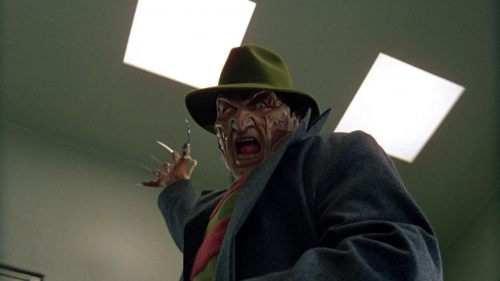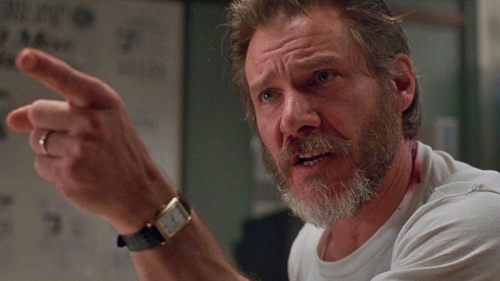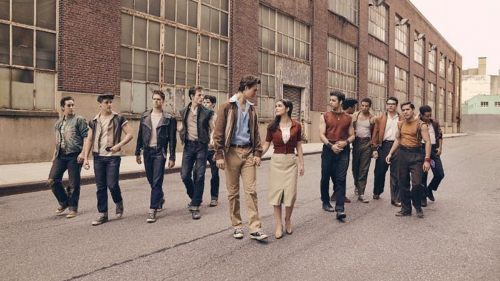I Love Remakes, Reboots, Sequels And Prequels
I’ve been covering film music and soundtracks for almost nine years and today, I’m going to do something I can’t recall ever having done before. I’m going to write about a topic that isn’t specifically related to film music. I have thoughts and every now and then I feel like getting up on a soapbox and articulating those thoughts to anybody willing to listen (and hopefully a few unwilling).
If you scan the current slate of upcoming films popping up in theaters, online and on DVD and Blu-ray, you’ll notice a hefty quantity of remakes, reboots, retellings, restarts and a whole mess of storytelling that is simply recycled. I’ve heard the thoughts of cinephiles who vehemently abhor this trend and are quick to express their displeasure. I’d like to refocus the lens a little bit and see if I can sway some naysayers to further appreciate the art of narrative interpretation.
Storytelling is an art form and like other art forms, artistic interpretation is an important aspect to appreciating it. The very nature of storytelling demands that tales should be told and retold by as many different people as possible. Nobody holds a monopoly on a story. Just because somebody directed a film last century, last decade or last week, that doesn’t disqualify another from telling the same story today. It’s through creative interpretation that these fields of artistic diversity flourish.
How many artists during the Renaissance depicted the crucifixion of Christ? When Picasso painted “Still Life With Bull’s Skull” in 1939 (a subject Picasso himself tackled many times) was the world baffled by yet another painting of random objects? What about the seemingly endless parade of nude male athletes sculpted from virgin marble? As connoisseurs of art, are we satisfied with a singular representation of a subject or should the artists’ interpretation factor into the equation? Doesn’t cinema have a responsibility as an art form to strive for the same goals?
These are all questions that infiltrate my mind when I hear folks stubbornly dismiss hints of remakes, reboots, sequels or prequels.
The inherent problem with cinema is that it’s not economically or legally feasible to produce a multitude of films based on the same narrative material. There are rights to be acquired and the dependence on profitability makes this extremely difficult (if not outright impossible). However, we’re entering a period of cinema where there are certainly signs that cinematic interpretation is both artistically interesting as well as profitable.
Star Wars is now in the hands of The Walt Disney Company, who has subsequently dispersed its evolving narrative amongst a stable of talented filmmakers who will inject their own unique personal interpretation on a beloved story that, until recently, had only one teller. This is a dream come true! It won’t matter if these films are better than the original three or worse than the three succeeding prequels. The fact that it’s “old material” in the hands of new visionaries is enough to make this overwhelmingly exciting.
Marvel and DC are currently battling each other to create intertwining stories featuring an ensemble of recurring characters told through the perspectives of different filmmakers. This narrative interpretation, harvested from the pages of their comic books, is consequently leaking out onto other media as well, like television and video games. Some of these characters’ stories have been told and retold a number of times. This is something to celebrate, not lambaste.
In October 2014, Eli Roth announced that he will executive produce a remake of his film Cabin Fever utilizing the exact same script as the film he directed in 2002. While many in the cinematic community collectively rolled their eyes, I find this news absolutely fascinating!
Whether or not the Cabin Fever remake is successful (or even good), I do wish more films could be made this way.
Now, I get it - the cynic in me understands that not all films are art and many remakes or reboots are seen simply as a corporate cash grab, and that turns off a lot of people, including me. Yet there are still fascinating elements to behold when sequels, remakes and reboots erupt onto the silver screen. It’s not lazy filmmaking to pick up a story that’s been told many times, dust it off and tell it in your own unique way. It’s a side of cinema that is worth exploring.
There’s no reason to dismiss a film solely because it doesn’t live up to the “original.” You can wholly love Joel and Ethan Coen’s True Grit (2010) without taking anything away from Henry Hathaway’s True Grit (1969). You don’t have to feel like you’re betraying your devotion to Star Trek II: The Wrath of Khan (1982) by adoring Star Trek Into Darkness (2013) and there’s plenty of room in your heart for both Tim Burton and Christopher Nolan’s interpretations of Batman.
I often imagine a parallel universe where the oppressive constrains of film are uplifted and filmmakers rattle off multiple movies based on similar narrative material. Wouldn’t you love to see Batman’s origin told through the lens of Steven Spielberg, David Fincher, Joel and Ethan Cohen and Quentin Tarantino all in the same year? Or witness the landing of the allied troops at Normandy during World War II as told by Tim Burton, Martin Scorsese or Wes Anderson? This is the world of cinema in which I long for. There is so much interpretation to be explored in cinema, and although I think we’re moving in that direction, it’s largely under-appreciated.
IMDB currently lists 108 movies coming out in the next six years that are classified as remakes or reboots. I’d love for most, if not all, of them to be great movies. I doubt that will be the case; however, I’ll enjoy digesting the various interpretations of each of these stories and will continue to champion them to be told and retold and retold and retold…



